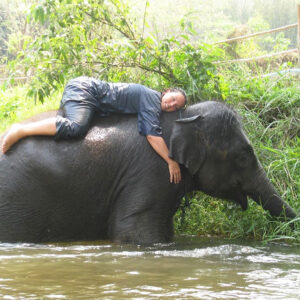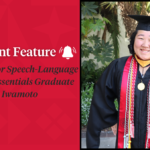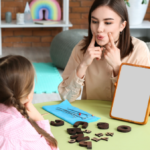
Tory Zellick and Kabu
The SDSU Writers’ Conference has a long history of launching careers by opening doors. This annual conference was among the first to pioneer 1:1 appointments with agents and editors, giving writers unprecedented access to top-tier publishing professionals — many of whom interact with unpublished authors only through conferences.
Among the more than 300 writing enthusiasts/aspiring authors who descended upon the 2015 SDSU Writers’ Conference was Tory Zellick of Chico, Calif., founder and CEO of All Things Caregiver Inc. With a goal of getting feedback on her travel memoir, An Elephant Named Kabu, Zellick scheduled the maximum five appointments with agents and editors.
Advance Reading Appointments require submitting the first 10 pages of your manuscript to be read in advance; Consultation Appointments are a Q&A opportunity to pitch the project as a whole and discuss its viability in the marketplace.
One of Zellick’s appointments was a consultation with freelance editor Jennifer Pooley. Every year, each editor and agent chooses their favorite project(s) for a Conference Choice Award, and Zellick’s was chosen by Pooley.
We trace Zellick’s SDSU Writers’ Conference experience, and where she is today on her journey to publication
What is your memoir about?
Here’s my pitch, which evolved out of great feedback I got at the conference: An Elephant Named Kabu follows 24-year-old Tory Zellick, her brother, and her father to Thailand weeks after her mother’s death. In this adult coming-of-age travel memoir, Tory — who served as her mother’s caregiver during the seven-year terminal illness — and her family have spurned the Western five stages of grief and traveled East where they are forced to collectively turn inward and reflect on their sorrow and find happiness, or at least acceptance, with their loss. The family tragicomedy adventure is filled with omens, experiences, life lessons, and self-discovery. Thailand will reawaken the family’s senses that had been dulled from years of doctor appointments, hospital rooms, and bad news. Shared laughter and tears will reunite the family that had arrived in Thailand on the brink of being torn asunder. Finally, on the back of an elephant named Kabu in an elephant sanctuary, Tory rediscovers happiness; she realizes that there is life after death, but only if life has meaning and purpose.
How long have you been working on it?
I’ve been working on it for four years.
Care to share the opening line?
I loved my mother but she was never my friend. We never had a chance to make it that far.
Could you tell Jennifer was pretty excited about your pitch or was it a complete surprise when you heard your name announced as a Conference Choice winner?
The Conference Choice, presented to me from Jennifer Pooley, came as a complete and total surprise! The validation and confidence this experience presented to me has been incredibly helpful in keeping this project alive.
How did the rest of your appointments go?
I scheduled the maximum five appointments. Each of the agents and editors I spoke with gave me helpful feedback about my proposal; they all seemed genuinely interested in my pitch. It was Elise Capron who suggested I really nail down my hook in the first 10 pages. I took her advice to heart and focused much of my time after the conference really solidifying what it is I am trying to convey to my reader. Jennifer Pooley seemed all-around positive and excited about the project, which truly, at the end of the day, helped me walk away with hope.
Are you still heady with euphoria?
There is still so much more to accomplish, which has a tendency to be daunting. However, I still grin from ear to ear when I think about how far this project has come.
What was his/her response to your complete manuscript?
I believe my experience was a bit unique in that Pooley is not seeking to represent writers at the moment. Jennifer has been a fabulous sounding board. I appreciate the relationship we established at the conference.
How did you hear about the SDSU Writers’ Conference?
A writer friend, who has attended for the past eight years, strongly encouraged me to take a leap of faith and test the waters. I have to admit, I wasn’t sure if I was ready. But walking through the conference doors and meeting other authors, all in different phases of their work, was a priceless experience.
What do you think is one of the greatest strengths of the conference?
The breakout workshops are great and represent a wide variety of topics, but the opportunity to socialize in an informal environment with agents, editors and other authors is invaluable. Lunches and the social gathering at the end of the evening proved to be just what I needed. I asked questions, and made incredible contacts that gave me the confidence I needed to revamp my proposal and get to querying agents.
Had you been querying agents and trying to get representation prior to the conference? If so, what has the response been?
I had queried a few agents prior to the conference and all had the same response: I have a unique, heart-touching story, but grief memoirs are hard to sell. I heard the same thing over and over again at the conference as well. Chip McGregor [Editor’s note: Keynote speaker and literary agent] sat down at my lunch table and gave me some key advice about memoirs in general, but it wasn’t until I sat down and talked with Jill Marr (both at the mixer and after the conference via email) that it all came together. I was really selling a travel memoir; grief was just a way into the story.
Did you make a connection with a fellow writer or an editor or agent at one of the mixers or the networking lunch?
I made connections with both agents and fellow writers at these events. I truly believe these mixers are an integral part of the conference experience, and for me, the most beneficial.
What’s the first book that spoke to you as a young reader?
For me, it was Where the Red Fern Grows. I remember being a small child in the elementary school setting, sitting in a round semi-circle on the carpet in front of the teacher. It was incredible to me that the teacher could use words to tell a fictitious story and bring the entire classroom to tears. I still tear up when I think about Old Dan and Little Ann.
Who’s your favorite author (or top three if it’s hard to choose one)?
Harper Lee. I loved To Kill a Mockingbird twenty years ago and recently reread the novel as an adult. It was a completely different book than the one I remembered from my youth, with strong undertones and one feisty heroine (who doesn’t love Scout Finch?). I find it incredible that one can write a work of fiction that withstands the test of time and is entertaining for young children. The story continues to expand as your reader ages.
What keeps you going in the pursuit of your writing goal?
I have an important story to tell. As our population ages, baby boomers reach 65 and the incidence of illnesses, such as cancer, continue to increase. The 65 million informal caregivers in our country will need a voice. They’ll need to know they are not alone. I was just 18 when my mother was diagnosed with cancer and 24 when she passed away. As her primary caregiver, my identity as an adult was closely intertwined with her well-being. When she passed, I needed to find meaning and purpose in my experience. It was our family to trip to Thailand that showed me that there is, in fact, life after death.
What’s the status of your memoir today?
After the conference, I contacted Chip MacGregor and he told me he was interested in representing my memoir, but that it needed professional editing first. He then gave me a list of six different editors he recommended. I decided on Sabrina Parys at Lorincz Literary. Sabrina had the manuscript for 10 business days and returned it to me with 11 pages of notes in a memo as well as suggestions via track changes in the manuscript itself. I will spend most of my Christmas break working on the next rewrite. (YIKES!)
Anything you’d like to add?
I would like to tell our story, Sue. [Editor’s note: Sue Norberg, interviewer.]
The 2015 Writers’ Conference was scheduled for Friday, Jan. 23-25. What you didn’t know as you asked me about my memoir and handed me my name badge was that that day, Jan. 23, marked the sixth anniversary of my mother’s passing. Every year, up until this year, my brother, father and I spent together in celebration of my mom and her life. Now, this year, I was “alone” in a big scary world, unsure if I even belonged amongst all these writers. I felt like an impostor.
When I told you my story, you teared up. Your response to my “elevator pitch” was sincere and genuine. I knew then that we connected. I looked to you the rest of the week as a safety net. Our brief interaction the first two minutes of the conference changed my entire weekend.
Friday night, I was incredibly uncomfortable at the social and called my dad from the front seat of my rental car, crying. I missed being with my family on this special day. My plan for that next day (Saturday) was to do my five one-on-ones with agents and editors and then go to the beach. I still felt like I didn’t belong.
After the one-on-ones, I had a renewed sense of confidence. You and I ran into each other again and chatted a minute about Jim McCarthy. At lunch I met a fabulous group of women (who I stay in contact with) and had several meaningful conversations with a few agents, including Chip McGregor.
That night, instead of letting the fear from the night before deter me, I walked into the social, intent on meeting Jill Marr, a recommendation from my one-on-one with Elise Carpon. Jill and I connected instantly, shared a few tears, and agreed to converse over email when the conference was over.
Sunday, feeling like I had accomplished what I had flown to San Diego to do, and still not having had the time to go to the ocean, I contemplated not attending. A little voice inside my head insisted I attend. Who knows, I may make one more connection? That one “thing” that could be a game changer? When my name was called for the Conference Choice Award, I was sitting with the women I had met the day before at the luncheon. I literally could not believe my ears.
After the award, I took a picture with you, Sue, and the two Jens. I felt like I had found my little writing family. There was a complete 180-degree turn from the fear, anxiety, and loss I was feeling on the 23rd to the unity I felt on the 25th. I truly felt like I was honoring my mother and her life. I also felt like a writer.




